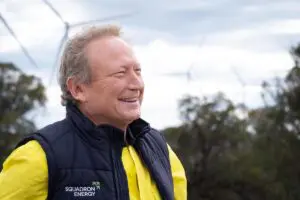Queenslanders have given renewable energy an overwhelming vote of support, telling the state government as part of its 30-year “Queensland Plan” that they want renewables to become the “norm” in the state.
 The document, produced after consultations with 80,000 Queenslanders, states that their goal is for renewable and alternative energy to become the norm.
The document, produced after consultations with 80,000 Queenslanders, states that their goal is for renewable and alternative energy to become the norm.
That would mean that “alternative, renewable energy is a Queensland commodity. It is affordable, commercially viable and available to all Queenslanders. Our infrastructure supports these renewable energy solutions.”
The document also states: “Increasingly, Queenslanders are turning to renewable energy alternatives. In the coming decades, as new technologies emerge, cleaner alternative energy sources may help us become better and wiser at using natural resources so they are protected and last longer.”
Premier Campbell Newman hailed the plan as “a massive and exemplary exercise in listening and consulting which involved various discussion forums from summits and community think tanks to boardroom workshops and robust family debates.”
But Queenslanders shouldn’t get too excited about Newman’s LNP government making a sudden lunge towards clean energy.
Queensland may well have more rooftop solar PV than any other state – 1.1GW out of a country total of 3.4GW – but it has very few large scale renewable energy projects, and little prospect of more in the near term. Network operators have also introduced new rules that may prevent new solar installations from exporting their output back into the grid.
The Newman Government has constantly derided “green schemes”, such as the solar feed-in tariff, for contributing towards higher power prices, even though it has benefited from a huge increase in dividends from the state owned network operators derived from big increases in network costs.
The government also wants the renewable energy target brought to a halt, rather than expanded. This appears designed to accommodate the needs of the state-owned fossil fuel generators, Stanwell Corp and CS Energy, which have called for renewable support schemes to end.
Stanwell Corp, in particular, has been critical of the role that rooftop solar has played in lowering wholesale electricity prices and forcing its books into the red.
The Queensland Energy Minister, Mick McArdle, said in his submission to the RET Review panel, that efforts to reduce emissions should be delayed until the state is rich enough.
So, how will the Newman government respond to the desire of its constituents expressed in the Queensland Plan?
The document includes some suggestions about how Queenslanders can “turn their ideas into action” and “make our vision a reality”.
Specifically, the document recommends:
“Subscribe to local and international think tanks and keep up to date about alternative energy solutions and environmental issues.”
Well, that’s a start. We trust, however, that the Newman government is not suggesting the Institute of Public Affairs. We’d recommend The Australian Institute, or the Centre for Policy Development. And RenewEconomy.








